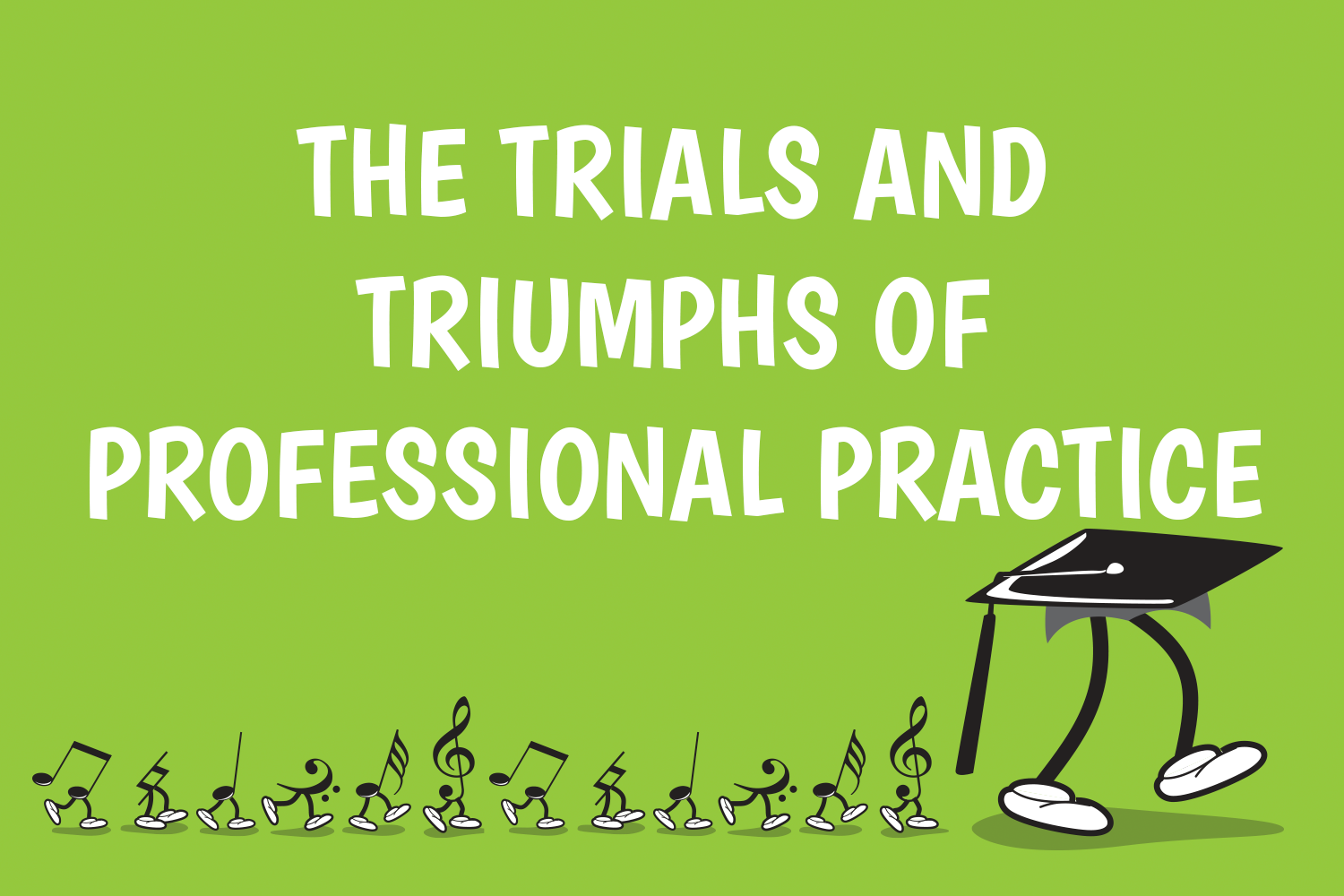The trials and triumphs of professional practice

This post originally appeared on our PreachWhatYouPractice site.
Original Published Date: 15 August 2013
Recently I’ve started to practice the piano again. Real practice, as in proper, sustained practice, consisting of a lot of technical work and then some difficult repertoire. And… I have made quite a few discoveries about the way I approach practice versus the way I assume my students will approach practice.
The reason this all started was that last term I had the pleasure of accompanying my daughter for her flute exam. It’s something I’ve done every year for both of my kids since they were little; it’s always a privilege to be able to go into the exam room and hear how they play – something most parents don’t get the opportunity to do.
Anyway, this year it was just a teensy bit stressful. My daughter is now up to seventh grade, and the accompaniments are not just oom-cha oom-cha anymore. Up until now, I have been able to rely on my sight reading skills to be able to get through a few rehearsals, and then do just a quick brush up before the exam (of course, since I was not getting paid, I figured this was perfectly acceptable). But these accompaniments had octaves, great big crashing cluster chords, fast passages that were not based on scales, and a huge variety of key sig and time sig changes (my daughter quite likes avant garde music). Not only could I not get by just sight-reading these accompaniments, I actually had to practice them a lot… and I wasn’t doing a very good job.
I came to the realisation that my piano technique had begun to fade somewhere in between getting married and having my first child. It then completely disappeared after having my second child and spending all my time writing BlitzBooks. Demonstrating pieces for a few students each week was not going to be sufficient to keep up any semblance of good playing.
So I found myself thinking: is this it? Am I going to be someone who used to play the piano? Or am I going to do something about it?
I decided I needed help, so I emailed my piano teacher from my Conservatorium days and asked if I might be able to come and have a lesson to try to resurrect my long lost piano technique.
She thought it was a lovely idea and over the next month, I had three or four lessons. But more importantly, I actually did some practice in between the lessons (which, as anyone knows, is rather essential to make the actual lessons worthwhile).
Here are some basics I discovered:
- If you don’t think you’re improving, you won’t practice
- If you are worried you are not doing it right, you won’t practice
- If you don’t like the material you’re playing, you won’t practice
- If it’s a really nice sunny day, you’re unlikely to practice
My teacher had also asked me what repertoire I would like to play. At first, I had thought it would be a terrific idea to learn some of the 48 Preludes and Fugues that I had never done. After five minutes of trying one of the Fugues, I decided to revise this goal down to the two and three part Inventions.
The technique exercises I started on were primarily for working on and developing my cantabile sound using arm weight and finger/hand control. Exercises for finger strength and independence came next, with big block chords and finger lifting. Then there were the usual scales and arpeggios, which build endurance. I forced myself to keep doing these technical exercises even though I couldn’t feel myself improving as quickly as I would have liked. I kept my motivation up by reassuring myself that there’s no way I can be making my technique worse by practising…
The studies I started on (well actually I revised them from years ago) were from Clementi’s Gradus ad Parnassum, as well as a couple from Cramer’s selected studies. My teacher asked me to play these extremely slowly with exaggerated wrist movement and I have to say that after a while of doing this it really did work much better fast! It felt like a Karate Kid moment after doing ‘wax on, wax off’.
I thoroughly enjoyed doing all of these exercises and studies. It was relaxing in a way, being able to tune out of the higher mental complexities that come with sight-reading, analysing and thinking while playing repertoire, and just tuning in to legato and endurance.
So I was on my way and began to fall into a somewhat regular practice routine, consisting of technical work and Bach inventions. Here are some more things I discovered:
- Playing a difficult passage three times in a row correctly is not enough. 5-10 times is effective.
- Trying to memorise something you’ve spent a lot of time sight-reading is extremely difficult. It takes active memorisation rather than memorising by ‘osmosis’ (i.e. gradually falling into a habit of playing from memory).
- After spending much effort and nailing a particularly difficult passage on one day, the next day it can be completely gone again. Gone like it was never practiced. This is extremely frustrating. However, like all physical pursuits, the muscles need time to learn and adjust, and they can’t be ‘taught’ everything they need to know in just one session.
So, all in all, I realised that the advice I give to my students about practice, whilst accurate, is actually all rather simplified. Now I can really and truly empathise with them when trying to perfect or memorise something. It is like a doctor who becomes a patient and realises his bedside manner is all wrong!
The point of this article (and more like this to come) is that pianists discover things through practice that helps communicate things to students. This is why people should ‘preach what they practice’.

So well written and so true…thanks for sharing your practice routine…I need to get back into one. I’m afraid I’m flabby and out of shape and don’t fit into my past technical fitness level 🙂